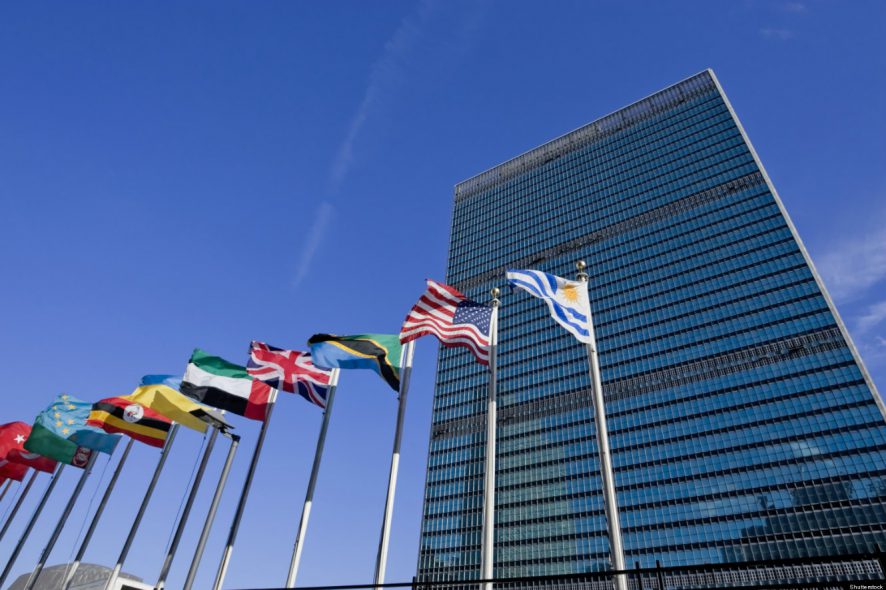The UN Human Rights Council (HRC) conducted its 47th session, June 21 – July 14, and pushed forward on priority issues as an observer state while actively pursuing election to the Council for the 2022-2024 term.
Key outcomes of 47th HRC as released vide press release dated July 14, 2021 are as follows:
- Countering Systemic Racism: Building off the U.S.-led joint statement on racial justice at HRC 46, the United States looks forward to cooperating with a new mechanism on systemic racism to advance racial justice and equality in the context of law enforcement. We welcome the High Commissioner’s report underscoring that systemic racism demands a systemic response and calling for an agenda that promotes accountability and redress for victims.
- Elimination of Violence Against Women and Girls: The United States co-sponsored a resolution on “Accelerating efforts to eliminate all forms of violence against women and girls: preventing and responding to violence against women and girls with disabilities,” led by Canada. The resolution urges stakeholders to address the multiple and intersecting forms of discrimination that women and girls with disabilities face.
- Human Rights on the Internet: The United States re-joined the core group and served as a main co-sponsor for a resolution on the promotion, protection, and enjoyment of human rights on the Internet, along with Sweden, Brazil, Nigeria, and Tunisia. The resolution affirms that the same rights people have offline must be protected online and includes thematic focuses on bridging the digital divide and the importance of the internet during the COVID-19 pandemic.
- Ethiopia’s Tigray Region: The United States co-sponsored the EU-led resolution on human rights in the Tigray region of Ethiopia, which calls for an immediate cessation of hostilities, the swift, verifiable withdrawal of Eritrean troops, and the holding accountable those responsible for human rights abuses and violations. The resolution builds upon the ongoing OHCHR-Ethiopian Human Rights Commission (EHRC) joint investigation, requests the High Commissioner keep the Council updated on progress of the joint investigation, and keeps the situation in Ethiopia’s Tigray region on the HRC’s agenda for upcoming sessions.
- The United States also co-sponsored resolutions on the human rights situations in Eritrea, Belarus, and Syria, along with resolutions on the Right to Education; Right to Education for Girls; Civil Society Space; Preventable Maternal Mortality and Morbidity; Human Rights of Migrants; New and Emerging Digital Technologies and Human Rights; and Technical Assistance and Capacity Building for Ukraine.
- Joint Statements: Overall, the United States signed onto 16 thematic or country-specific joint statements. The United States joined 43 countries in co-signing a Canada-led joint statement expressing concern over human rights abuses in Xinjiang, Tibet, and Hong Kong. The United States also signed onto country-specific joint statements on Belarus, Iraq, Nicaragua, and Venezuela. We led a statement on the 10th anniversary of the UN Guiding Principles (UNGPs) on Business and Human Rights (BHR), signed by 50 countries. We supported a Norway-led joint statement reaffirming the UN’s role in promoting and defending democracy, which garnered signatures from 64 countries. We also joined statements on the Freedom Online Coalition; announcing the creation of the Group of Friends on Sexual Orientation and Gender Identity; disinformation and freedom of expression; violence against transgender women; female genital mutilation; sexual and reproductive health and rights; promoting human rights through sport; and the economic rights of women.
- Side Events: On June 22, the United States co-hosted a side event on the global #MeToo movement with the Executive Director of Georgetown’s Institute for Women, Peace, and Security, Melanne Verveer. On June 23, the United States led, and 20 countries co-sponsored, its first-ever side event on the human rights of transgender women, highlighting the violence and structural, legal, and intersectional barriers faced by transgender women of color. On July 1, the United States led a side event on the impact of Hong Kong’s National Security Law on its one-year anniversary, garnering 20 government and nine NGO co-sponsors.
*Tanvi Singh, Editorial Assistant has put this story together.







